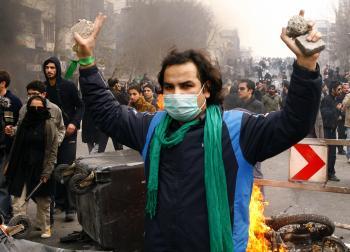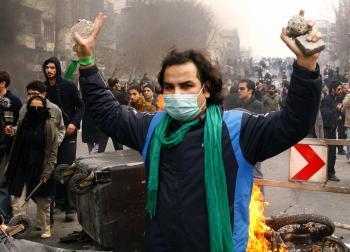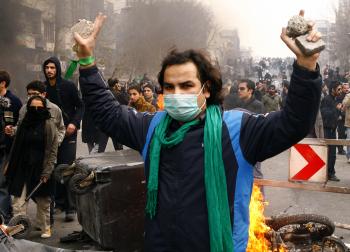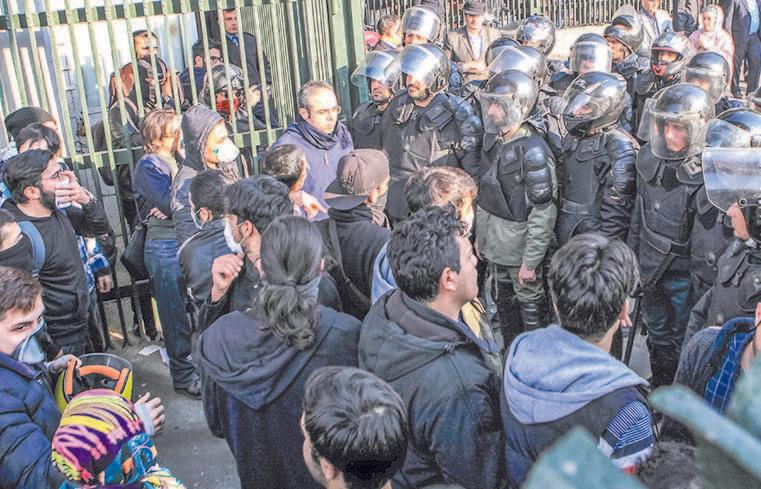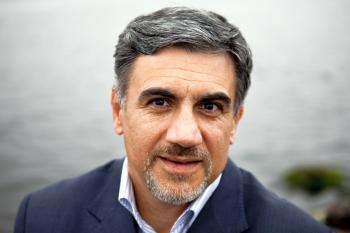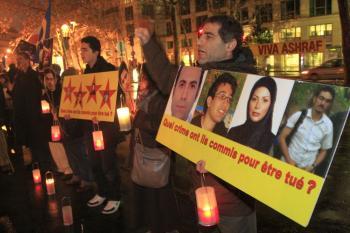At least five opposition protestors were killed on Sunday as clashes continued between the Revolutionary Guards and opposition protestors on the Shi’ite holy day of Ahsura in Iran’s capital city, Tehran, and other major cities including Tabriz and Mashhad.
Ali Habibi Mousavi, Mir Hossein Mousavi’s nephew, has been confirmed by Iran state media to be one of the five killed.
The head of Security in Iran has denied the use of any guns, however, several different sources claim the nephew of Mousavi was shot in the back.
Conflicting reports online from opposition websites put the death toll up to ten, while another 300 protestors reportedly have been taken into custody as public protests have become as frequent as a daily occurrence across all major Iranian cities including Isfahan, Shiraz, and the holy Shi’ite city of Qom.
Several websites also showed unofficial video of an Iranian opposition protester being run over my a Iranian police car.
